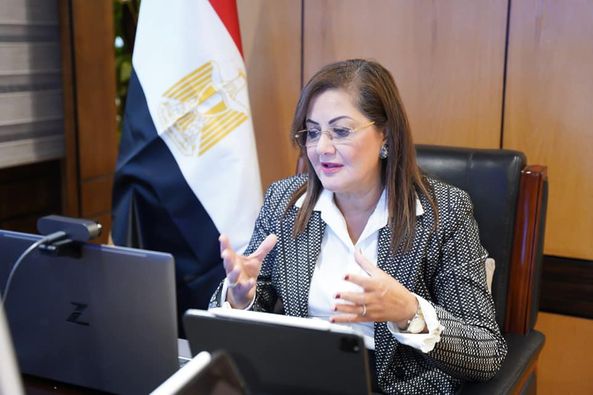Egypt’s Minister of Planning and Economic Development Hala el-Saeed on Tuesday participated virtually in the launch of the annual update of the Multidimensional Global Poverty Index (MPI) 2022, which was held by the United Nations Development Programme (UNDP) and the Oxford Poverty and Human Development Initiative (OPHDI).
The report provides valuable insights on how to tackle poverty by addressing its multiple dimensions and looking closely at the interlinked deprivations.
The minister said in her speech that all developed countries and international societies should rally efforts to reduce poverty in developing countries, as half of the poor worldwide are children under 18 years old.
Governments are aware that global crises have the greatest impact on young people, the minister said, adding that by understand multidimensional child poverty, it may be possible to provide the most effective investments for the development of human capital, reducing inequality and eliminating poverty in all its forms, now and forever.
Concerning Egypt’s good performance in reducing poverty indicators, el-Saeed said that the government has made great strides to cut poverty, thanks to the success of the state’s efforts to achieve social justice in conjunction with the economic reforms, which focused on the social dimension of development.
The minister noted that Egypt has been more successful in reducing multidimensional poverty, according to the Global Multidimensional Poverty, recording 4.9 per cent of Egypt’s population in 2014, down by more than a third from 8 per cent estimated in 2008.
The percentage of people who cannot secure their food needs decreased nationwide to 4.5 per cent in 2019-2020, from 6.2 per cent in 2017-2018, and this can be attributed to economic reform efforts.
El-Saeed stressed the need to develop a national multidimensional poverty index in Egypt due to the relatively low levels of general poverty in the country according to the global multidimensional poverty index.
She said that the index consists of seven dimensions that include health, education, housing, services, employment, social protection, and food security, in addition to 21 indicators selected based on consultations with national representatives and specialists in this regard.
The report identifies a series of ‘deprivation bundles’, recurring patterns of poverty that commonly affect those who live in multidimensional poverty across the world. The data are used to identify the poverty profiles that are more common in certain places. This is a crucial step in designing strategies that address multiple aspects of poverty at the same time.
The minister stressed the Egyptian government’s keenness to address the underlying causes of poverty in Egypt, noting that the ‘Decent Life’ presidential initiative, launched for the first time in 2019, focuses on alleviating multidimensional poverty and providing integrated services to improve the quality of life of Egyptian citizens, especially those who live in rural areas.






Discussion about this post